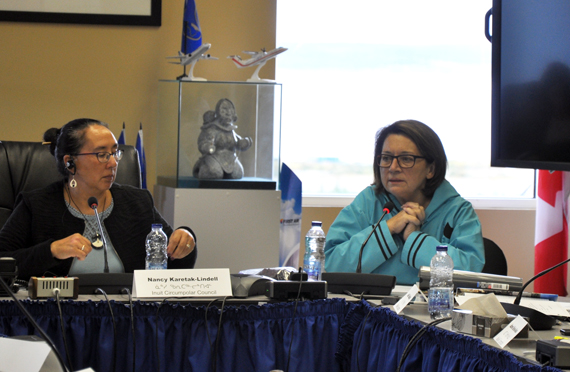Canada’s federal government seeks northern input on new Arctic policy
Residents of Canada’s North have until the new year to weigh in on a new Arctic policy that’s meant to improve the federal government’s approach to the region.
And that consultation promises to be crucial, given the government’s position that a new strategy should engage northerners and Indigenous people.
Last December, Prime Minister Justin Trudeau announced that his government would develop a new Arctic Policy framework in collaboration with provincial, territorial and Indigenous groups to replace the former Conservative government’s 2009 Northern Strategy and its 2010 Arctic foreign policy.

As part of that process, Ottawa last year named Inuk leader Mary Simon as special advisor to Carolyn Bennett, the minister of Indigenous and Northern Affairs.
Her report, released earlier this year, A New Shared Arctic Leadership Model, offers more than 40 recommendations on how the government should approach northern issues.
Among the highlights, Simon called on Ottawa to make education the cornerstone of its Arctic policy, including the creation of an Arctic university, increased funding for early childhood education and better support for Indigenous language development.
She also proposed a new conservation concept: Indigenous protected areas, which would be jointly managed by Indigenous peoples and government.
Now, the government says it’s seeking input from northerners and other Canadians on how to move forward.
“We believe that through collaboration, the Government of Canada can support real, long-term opportunities to build strong communities, robust economies, and sustainable environmental practices,” said a Nov. 15 joint ministerial statement from INAC and the Department of Foreign Affairs.
“It is in the spirit of collaboration that we are asking for your advice in further developing this new Arctic Policy framework.”
The release comes a few weeks after the government hosted roundtables in Kuujjuaq and Iqaluit, though both events were by invitation only.
For its part, the Quebec government pledged its own participation in the process. But the minister responsible for Quebec’s Plan Nord also called on the federal government to ensure the region of Nunavik is included and will be eligible for any funding targeting Arctic regions.
“I am delighted that the Government of Canada is interested in the needs of Canada’s Arctic territory and its inhabitants, including Nunavik,” said Pierre Moreau, who also serves as Quebec’s Minister of Energy and Natural Resources, in a Nov. 17 release.
“However, it is important that the proposed Arctic Policy Framework respect the Québec government’s policy directions and priorities pertaining to northern development included in the Plan Nord and that the federal government offer Québec adequate funding.”
The public can participate in the process by reading the government’s discussion guide and then sending an email to [email protected] or tweeting input using the hashtag #ArcticTogether.
Public input will be gathered until the end of January 2018.